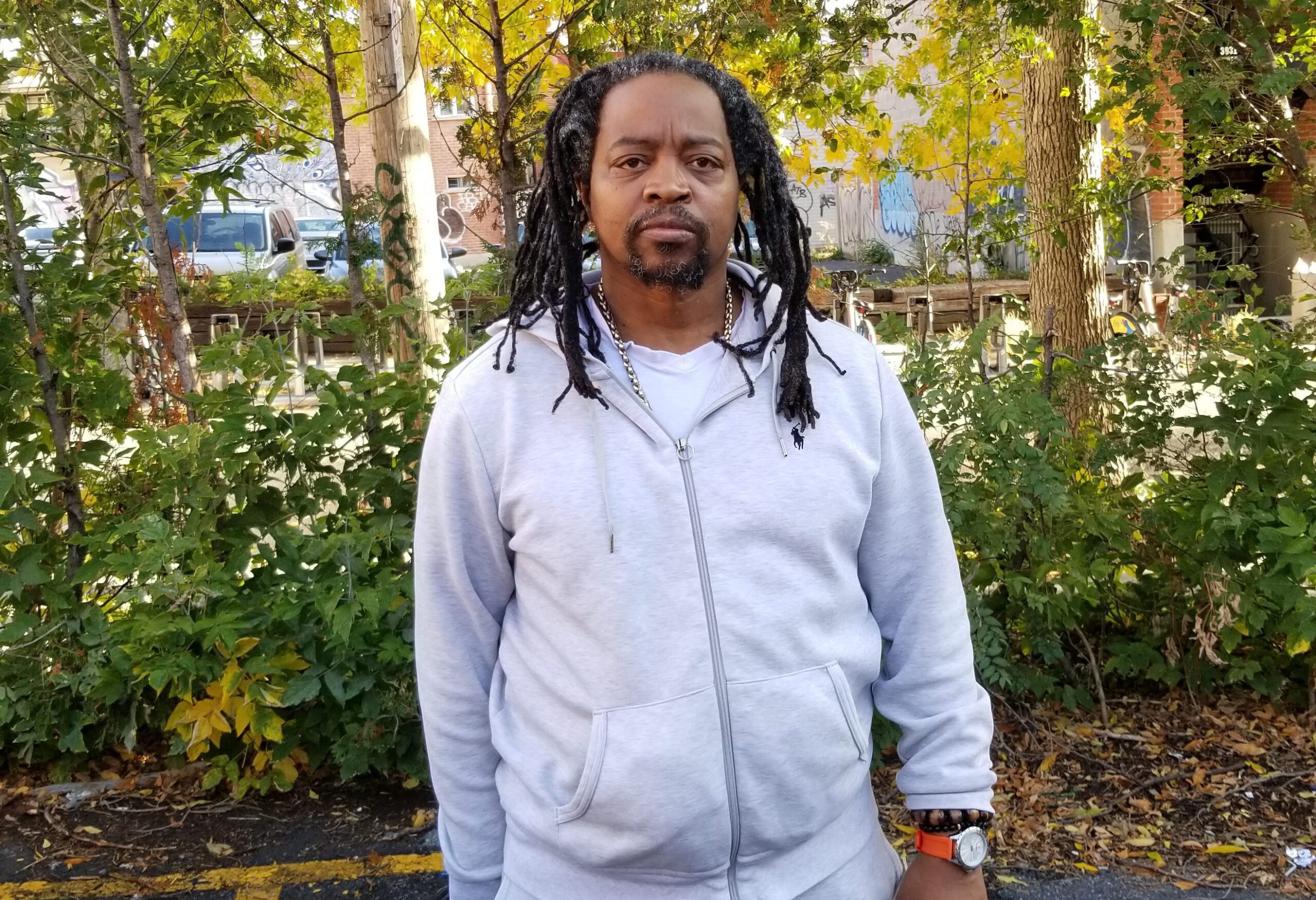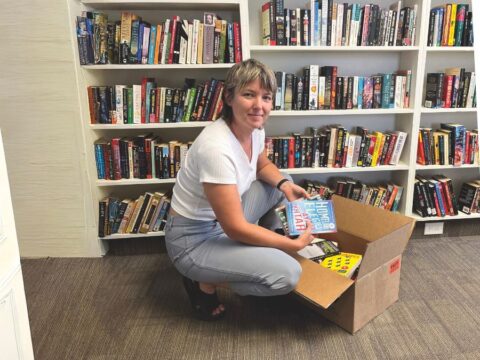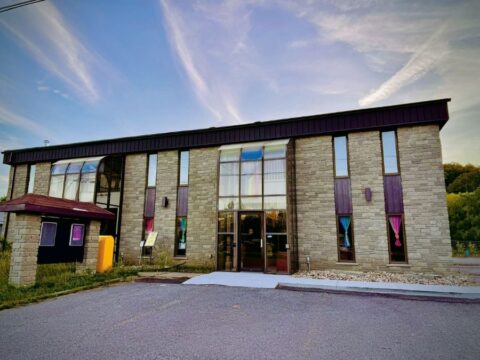This interview is the fifth in a six-part series about rethinking the police. A new article will be posted every Wednesday.
After the deaths of George Floyd, Breonna Taylor, Ahmaud Arbery and many others, conversations about the many ways in which racism permeates our society are more important than ever.
You may unsubscribe from any of our newsletters at any time.
In Toronto, Black people are 20 times more likely to be shot dead by police than white people. In Halifax, Black people are six times more likely to be street checked than white pedestrians. Racial profiling remains an issue across the country.
On July 4, 2019, Wayne King, a father of four, was outside his favourite cafe in Montréal, when he says police harassed him in front of his family and friends, claiming he looked like a suspect they were searching for. This had happened to him before.
King shared his multiple experiences with police with Albina Retyunskikh in Montréal.
Albina Retyunskikh: Tell me more about yourself, and your encounter with police last year. What happened that day?
Wayne King: I’m originally from Jamaica, but I’ve been here most of my life. When that incident happened, it was here, on Boulevard Saint Laurent. It’s happened many times before, but this time, it was shocking, because it was at a place where I go every morning, after I drop my daughter at school, to sit, relax, and have tea. I know the owner; everyone knows me. I’d sit and wait for my wife to come. That day, she came with my baby son strapped onto her. We were outside talking to a lady we knew. About five minutes into the conversation, a police car pulled up and when they got out, they were walking towards us. I saw them, but didn’t think much of it. I thought they wanted to get a coffee, maybe. But they came to me and asked for my ID.
AR: What happened next?
WK: I refused to show my ID, because there was no reason to do so. They told me there was a complaint against me and I knew that couldn’t be true because I’m always at that cafe. When he said that, I already knew something was not right. I explained I was there, sitting and drinking my tea, and that they could ask the owner and the staff. When I said that, they kind of changed the story so that I fit the description of someone that they were looking for. I knew they were making stuff up as they went along. I was so upset. After they finally checked my ID — I gave it to them to avoid being arrested in front of my baby — we just left.
AR: Did you file a complaint?
WK: My wife knows an ex-police officer, so she called her to ask what was best to do in this situation. She said to go to the station and ask to speak with the commander of the station. I didn’t really want to do that, but my wife insisted, so we went. On the way there, our friend — whom we spoke to at the cafe — called us, and said how terrible that incident was. She said the police later walked up to her and showed her a photo of the suspect they thought was me. From her description, the guy looked nothing like me. I knew they were making stuff up.
AR: What happened at the police station, where you went to file a complaint?
WK: I asked my wife to do the talking, because I was very angry. When we got there, the first person we saw was a female officer at the front desk. We asked to talk to the commander and she practically laughed at us. She told us that no one gets to talk to him. She was very, very rude. We thought they would be professional. My wife is not rude, she’s a very kind person. I asked the officer why she was being rude to us. We were talking to her politely. She finally said someone would come out and talk to us. Another officer came out, brought us to a room, and sat down to talk to us. We told him what happened, and he was defending their position, which was predictable. I understood we weren’t getting anywhere, so before we left, I just asked to see the photo of the suspect they were looking for. He asked someone to help him find it, and when he came back, he showed me the photo. The person looked nothing like me. He was darker than me, had a different hairstyle.
When something like that happens to you, you don’t know how to react.
AR: After you left the station, did you go somewhere else to share what happened to you?
WK: I knew I had to do something. I went to the Center for Research-Action on Race Relations and I filed a complaint. And so that’s now in the works. Just before COVID-19, we were supposed to meet because we had a mediation where I was supposed to go, and the officers that stopped me were supposed to be there. I was supposed to be there to express how that made me feel. I also have a complaint with the Human Rights Commission which is still in the works as well, so I’m just waiting to see what’s gonna happen from here.
Have you been racially profiled before that incident?
It’s an ongoing problem. You know, it’s happened to me many times. One day, just up the street from here, I was waiting for the bus after dropping my daughter at daycare. I was sitting waiting for the bus and they came up the street that was going the other way. They came to harass me, even though they were going in a different direction. I asked them why they were harassing me, and they asked why I was being like that. They were just there to say hi — those were their words. I asked not to be harassed and they laughed and said “have not a nice day” in their bad English. And this is who’s supposed to be protecting us?
Do these types of incidents happen often to you, or anyone you know? How does it make you feel?
It’s happened so many times to friends of mine and people who are just living their day-to-day life. They’re not doing anything wrong. It builds inside. It’s frustrating. If I was a young person, maybe I would end up getting arrested. When something like that happens to you, you don’t know how to react. I’m not young, so I know how to deal with it. But it’s happened to me at least three times recently. Another time, they pulled up to me while I was walking and said “I jaywalked back there.” I told them to give me a ticket if they wanted to, because I was just walking home. And they laughed at me, and gave me the ticket. If you’re young, you might find this offensive, but I knew what they were trying to do. This happened on Crescent Street, where everyone bar hops and crosses the street all the time, and it was after midnight.
More on Broadview:
- How Kayla Grey is fighting against systemic racism
- Simon Moccasin on taking a stand against police violence
- Black churches in U.S. mobilize against alleged voter suppression
AR: Do people complain every time an incident happens?
WK: No, they don’t. People get tired. They don’t complain. They just want to go about their lives. I almost didn’t do anything either. I knew it was going to happen again, so I spoke up. You have to put it aside and go on with your life, but it leaves an impact on you. It’s an ever-present thing in people’s minds; when Black people see police, we think that they might come and bother us for no reason. There are serious crimes happening, but they think that it’s okay to harass someone standing with their wife and baby at 9 a.m. And I mean, what if I was a tourist?
AR: What changes do you see necessary in how the police works? What should people do to bring about change?
WK: They need to be punished. If you go to your job, and do something that’s not part of your job requirement, you deserve some sort of reprimand. You shouldn’t be allowed to do whatever you want without any repercussions. There’s not really any incentive for the police to change. I wish there was someone holding them accountable; from my experience going to the police station, I could see that they look after one another. They also deny the problem. When I asked them if they would do that to a white person, they told me not to use the “race card.” If you don’t see the problem, you can’t fix it. More people should speak up, but many are scared. But if we speak up, it will make a difference. They wouldn’t get away with it.
Albina Retyunskikh is a writer based in Montreal.
We hope you found this Broadview article engaging.
Our team is working hard to bring you more independent, award-winning journalism. But Broadview is a nonprofit and these are tough times for magazines. Please consider supporting our work. There are a number of ways to do so:
- Subscribe to our magazine and you’ll receive intelligent, timely stories and perspectives delivered to your home 10 times a year.
- Donate to our Friends Fund.
- Give the gift of Broadview to someone special in your life and make a difference!
Thank you for being such wonderful readers.
Jocelyn Bell
Editor/Publisher















The same thing happened to me. even more is that sensitive documents are missing and my cell phone ( samsung a5).